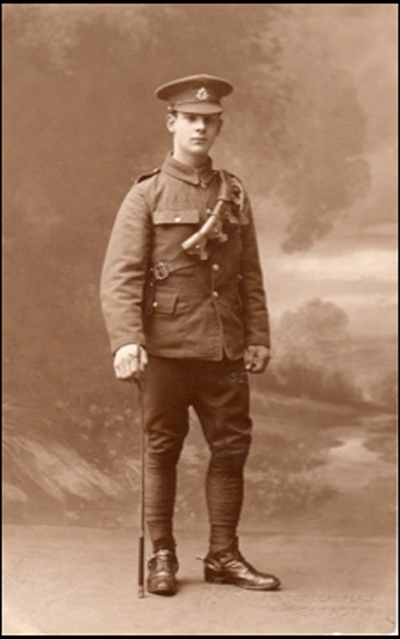![]() In memoriam
In memoriam ![]()
Private William James Finlay
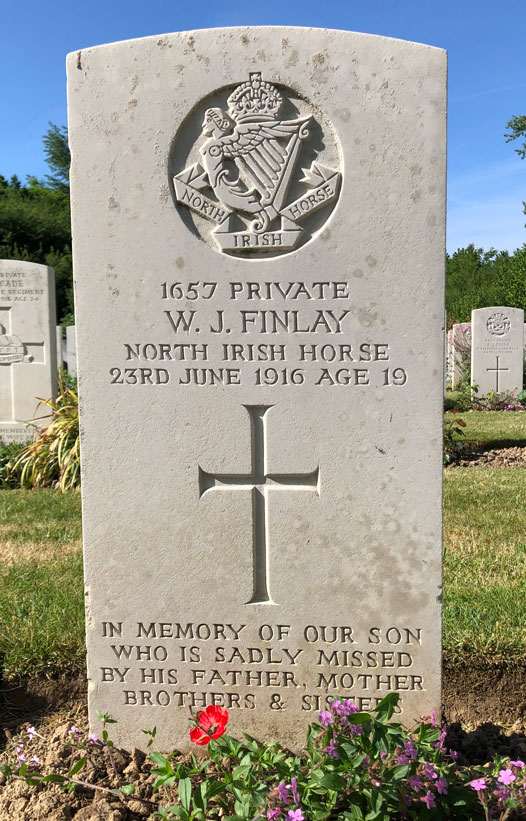
William James Finlay was born at Malta. He was the son of William James and Maria Concetta Finlay, of 28 Glenallen Street, Belfast. He enlisted in the North Irish Horse at the end of May 1915, aged 18 (No.1657).
Sent to France in 1916, possibly as a reinforcement for D Squadron, on 23 June 1916 he was killed in an artillery bombardment while working on a trench digging fatigue on the Gommecourt front.
A month later North Irish Horseman Private Samuel Gordon wrote the following letter to Finlay's sister:
22 July 1916
Dear Miss Finlay,
I received your letter & parcel which was very nice indeed, the only thing I am sorry at, is that poor Willie was gone, and was not here to enjoy the contents of same himself. It came rather sudden when your brother was killed, it all happened in a few minutes; I was with him myself and there never could have been a chance of him escaping in the position he was in, in fact I am surprised there was not more of us killed, it was a very rough day in the firing line, and we were on a working party, when we were started a short time the shell came that was the cause of poor Willie's death, he only lasted after he got it, up to the time he died he kept saying, God bless me. I don't think I
can't say any more at present. Thank you for your nice parcel and letter, and I hope to be able to see you & have a talk. I could then explain things better.
I am yours very truly,
S.L. Gordon
Private Finlay was buried at Foncquevillers Military Cemetery, Pas de Calais, France, grave I.E.11.
His gravestone inscription reads:
1657 PRIVATE
W. J. FINLAY
NORTH IRISH HORSE
23RD JUNE 1916 AGE 19
IN MEMORY OF OUR SON
WHO IS SADLY MISSED
BY HIS FATHER, MOTHER,
BROTHERS AND SISTERS
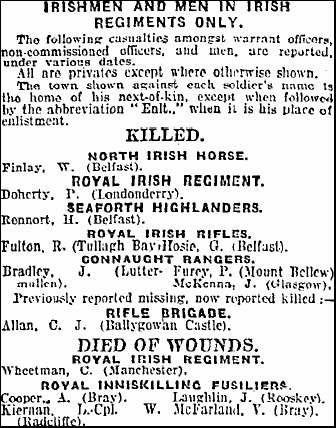

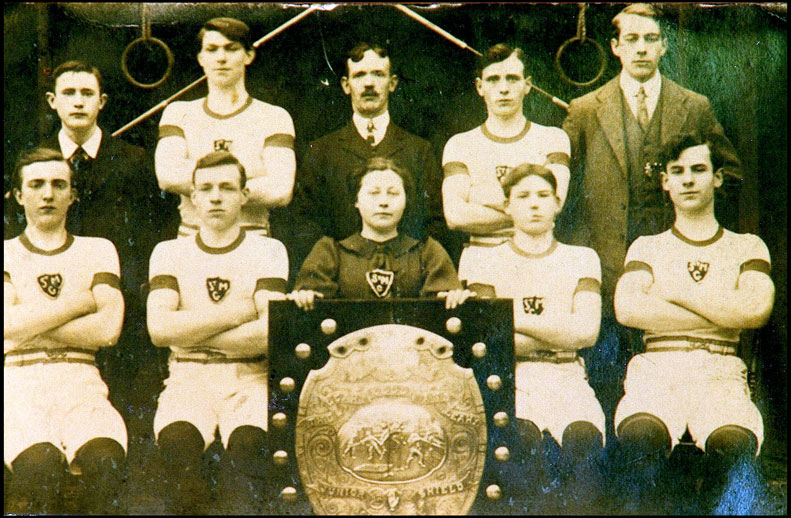
Pre-war (1914) photograph of St Matthew's gym team, Belfast, proudly displaying the Leahy Junior Shield. William Finlay is in the front row, viewer's far right.
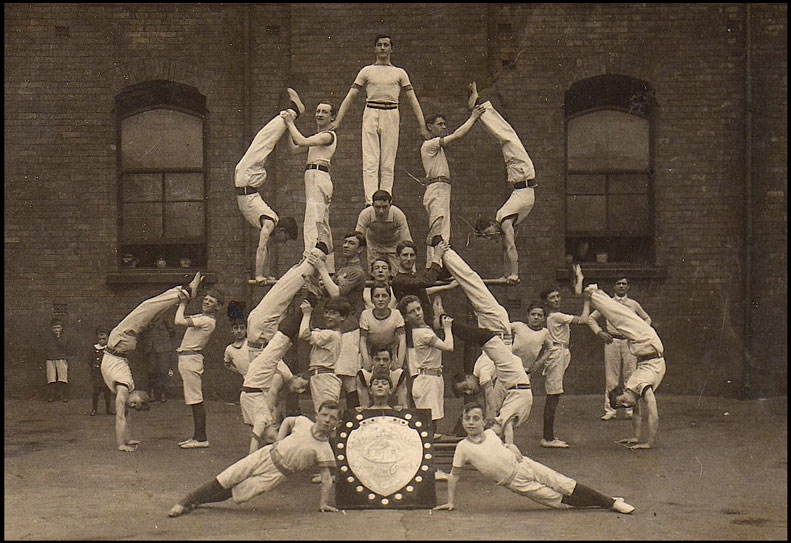
St Matthew's gym team
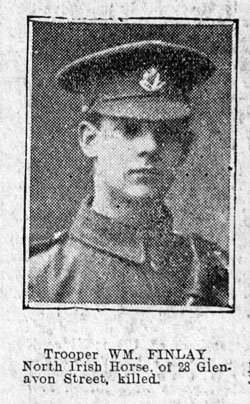
Larne Times, August 1916
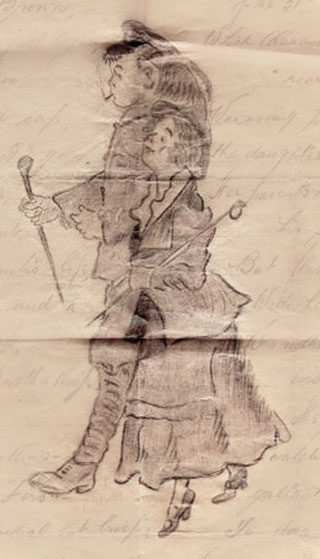
A sketch by Private Finlay in one of his letters home. It illustrates part of a poem (below).
A butchers stalwart errand boy,
young Alexander Brown,
Enlisted when the war had just begun.
Relinquishing his apron
for a khaki suit and cap,
His basket for a bayonet and gun.His hair was frankly ginger,
and his nose distinctly snub,
He'd never touched a rifle in his life.
But having cut up oxen,
and a quantity of sheep,
Was very quick and expert with a knife.He courted Martha Tomkins,
she was general at "The Firs"
His wooing had been cordial but brief.
It started over sausages
which he avowed were pork,
And she declared were nothing more than beef.But when he joined the colours
her importance knew no bounds,
There wasn't any squabbling after that.
She bought a purple costume
and a pair of yellow gloves,
And cherry coloured feathers for her hat.It chanced that Captain Raymond,
of the 51st Dragoons,
Which Alexander joined as a recruit,
Was wooing pretty Madeline,
the daughter of the house –
Her parents showed disfavour to the suit.But flaxen headed Martha,
With her honest heart aflame,
Was nothing l(?) their wishes to defy.
She gladly acted watch dog,
when the gallant Captain came
To do a bit of courting on the sly.
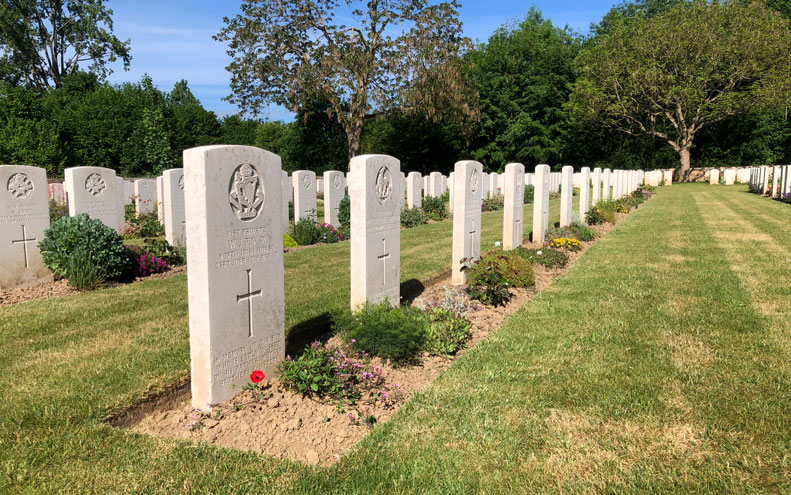
Images of gravestone Copyright © Phillip Tardif with all rights reserved as set out in this Use of Material policy. Newspaper clipping from The Irish Times, 21 July 1916. Larne Times image kindly provided by Nigel Henderson, Researcher at History Hub Ulster (www.greatwarbelfastclippings.com). All other images and letter by Private Gordon were kindly provided by his family.

